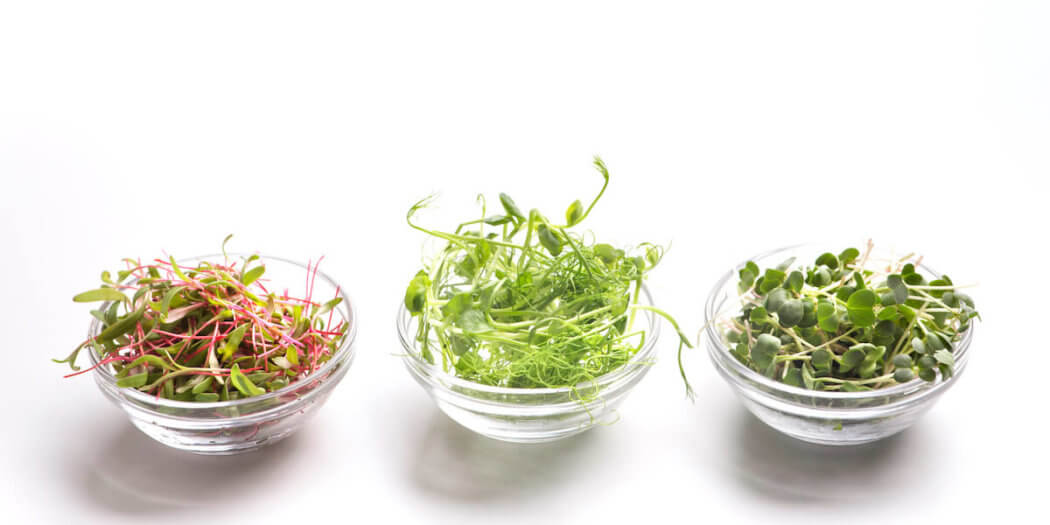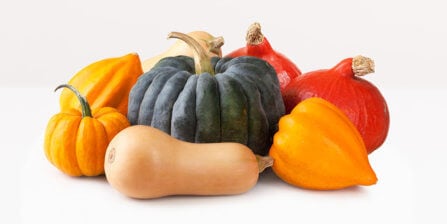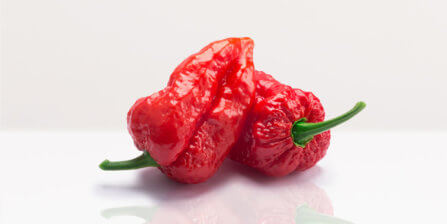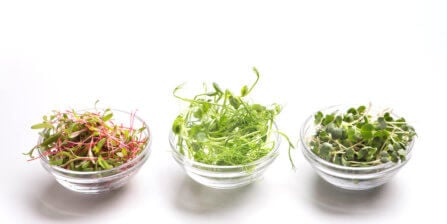Grocery Guides
Sprouts – All You Need to Know | Instacart Guide to Fresh Produce

What are sprouts?
Sprouts are the small shoots that grow from germinated seeds. Sprouts can come from a variety of seeds, including:
- Alfalfa
- Clover
- Broccoli
- Sunflower
- Beans
- Mustard
- Radish
- Dill
- Pumpkin
However, one of the most popular types of seeds used for sprouts is alfalfa seeds.
Sprouts are easy to grow within the comfort of your own home. Growing times vary depending on the type of seed; however, all sprouts should be rinsed every 8-12 hours to prevent bacteria from forming.
For a boost in freshness in your dishes, try adding sprouts to your sandwiches, salads, or quinoa.
Where do sprouts originate from?
The process of sprouting seeds is said to have started almost 5,000 years ago in China. Sprouts have been used for medicinal and nutritional purposes in Chinese medicine. Today, sprouts are growing in popularity and are primarily consumed for their powerful nutrients.
What is the nutritional value of sprouts?
The nutrition and benefits vary depending on the type of sprouts. One of the biggest benefits of eating sprouts is that they are easier to digest. Contrary to other grains and beans that can be difficult on the digestive system, sprouts can stimulate enzymes beneficial to digestion. Sprouts flours and grains typically contain less gluten content, which can be helpful to those with gluten sensitivities.
Bean sprouts from seeds and legumes have a boost in antioxidant levels. Sprouts also contain higher levels of vitamin B, vitamin C, vitamin A, and can often increase the amount of calcium, zinc, and iron.
How are sprouts grown?
Typically, when growing for commercial purposes, seeds are soaked in water, drained, and then dispersed in specialized trays or drums for growing. The seeds are continuously irrigated to ensure proper growth, and approximately 3-10 days after sowing, the sprouts are ready to be harvested.
Sprouts are also easily grown at home. Rinse your seeds, legume, or grains. Be sure to use seeds that are specifically for consumption. Seeds that are for planting could potentially be treated with chemicals or other non-edible products.
Place your seeds in a bowl, cover it with water, and set a kitchen towel or cheesecloth on top of the bowl. Depending on the type of seeds you are growing, allow the seeds to soak for the allotted amount of time suggested on the packaging. After soaking, strain, rinse, and transfer the seeds to a shallow dish. Place the dish on your kitchen counter to promote airflow and circulation.
The most important step to growing sprouts is to rinse them every 8-12 hours until sprouts begin to form. Once sprouted, rinse the sprouts, drain them, and store them in a glass container covered with ventilated food wrap in the refrigerator.
When are sprouts in season?
Sprouts are readily available throughout the year. Because sprouts are easily grown and harvested, they do not necessarily have a peak season. See what other fresh produce is currently in season near you.
What should I look for when buying sprouts?
When buying sprouts, purchase sprouts that look fresh and are firm in texture. Avoid sprouts that look wilted, dry, or yellowed or browned in color.
If you are looking to have your groceries conveniently delivered, you can easily shop for bean sprouts and more via Instacart. After adding a product to your cart, use the “Instructions” option to notify your Instacart shopper about any preferences or specific directions on how to choose the best products.
How to store sprouts
Because sprouts are living and breathing plants, storage requires more fine-tuned attention. Sprouts require continual rinsing to prevent bacteria from forming. After rinsing, allow your sprouts to dry completely. Any moisture on the sprouts can cause premature spoilage.
Once dry, store your sprouts in a container that is covered with ventilated food wrap (essentially, plastic wrap that has been poked with holes for airflow). Sealed jars and containers can suffocate the sprouts and cause them to perish faster.
When storing sprouts, keep an eye on the temperature. Sprouts prefer cooler temperatures, but if the temperature gets too cold, the sprouts could freeze. In general, sprouts should last a week when stored properly in the fridge.
How to tell if sprouts are bad
Sprouts that have started to spoil may have a strange or off odor. Another sign that your sprouts have started to go bad is discoloration. Sprouts are typically white in their stems, but they may acquire rust or brown tint when they start to spoil. If you notice any mold forming on your sprouts, dispose of them immediately.
What can I substitute for sprouts?
Microgreens can be a good substitute for sprouts. Microgreens are smaller in size and provide freshness and added color to a plate. If you’re looking to replace smaller sprouts like alfalfa for an alternate produce item, bean sprouts can be a good way to provide a bit of a crunch to your dish. Because there is such a large variety of sprouts, if you have grown complacent with one variety of sprouts, try another vegetable, bean, or grain variety.
Start cooking with sprouts
Sprouts are packed full of nutrients and are extremely easy to grow. For a pop of freshness, sprouts make a great addition to a sandwich or wrap, can be easily tossed into a green salad, or can be mixed into quinoa for a boost in nutrients. Try adding sprouts to your next culinary adventure by picking up some at your local grocery store or having your groceries conveniently delivered via Instacart.
Most Recent in Grocery Guides

Grocery Guides
Guide to Sustainable Grocery Delivery
Who has time for the grocery store these days? Between work, family and everything else, it feels like a chore we could all do without. That's where sustainable grocery delivery comes in! You get the…
Feb 7, 2025
Grocery Guides
19 Best Milk Substitutes for Baking and Cooking
Milk’s rich texture and neutral flavor make it a staple in countless recipes, bringing creaminess and balance to sweet and savory dishes alike. But what happens if you run out of milk or need a…
Jan 30, 2025
Grocery Guides
15 Best Cheeses for Your Next Charcuterie Board
Let’s face it: The heyday of the store-bought party platter is long gone. Now, the duties of a good host often include curating an impressive charcuterie board. But where do you begin? Charcuterie boards typically…
Jan 21, 2025

 Squash – All You Need to Know | Instacart Guide to Fresh Produce
Squash – All You Need to Know | Instacart Guide to Fresh Produce  Ghost Pepper – All You Need to Know | Instacart Guide to Fresh Produce
Ghost Pepper – All You Need to Know | Instacart Guide to Fresh Produce  Sprouts – All You Need to Know | Instacart Guide to Fresh Produce
Sprouts – All You Need to Know | Instacart Guide to Fresh Produce 

